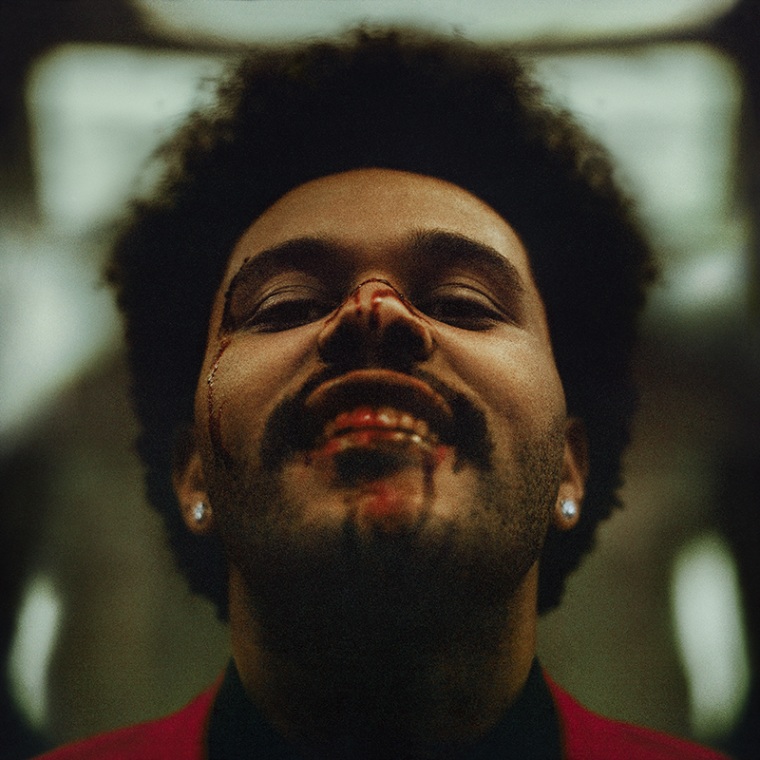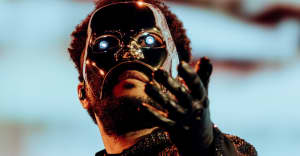
Earlier this month, I visited Kara Walker’s Fons Americanus sculptural installation at London’s Tate Modern. In the Tate’s photo book prepared for the show, British writer Zadie Smith penned an analytical essay about the artist, specifically on the complex and varied reactions spectators had and continue to have to Walker and her art. To many, Walker’s work is “salacious”, as Smith wrote. She went on to add that some opinions on Walker’s methodology insinuate that it “eroticises, aestheticises, fetishises, and dramatises…” to capture public attention.
In Smith’s analysis and in subsequent conversations I’ve had with friends about Fons Americanus, opinions were split: to some, Walker’s preoccupation with ruin and history rejigged reads perverse. Unthinkable. Boring. Careless. But to others, Walker is an expert of performance. Her career-long attempts at unpacking the strange and inglorious truths of sex, violence, and power don’t read as redundant, but rather, as disciplined artistic graduation. In the same essay, Smith critiqued Walker’s 2007-8 show, — titled My Complement, My Enemy, My Oppressor, My Love — and wrote the following: “The images themselves — violent, scatological, sexual, hateful, loving — exist in unholy mix, like the show’s title. They are given no hierarchy, moral or otherwise. All elements are presented simultaneously.” All in all, a wholly jarring, dramatic spectacle.
In a statement to Apple Music about his fourth studio album, The Weeknd offered a quote that could be described as Walkerian: “You can find love, fear, friends, enemies, violence, dancing, sex, demons, angels, loneliness, and togetherness all in the After Hours of the night.” Alternatively, Spotify’s artist blurb paints Weeknd as an “alternative R&B enigma-turned-pop star… whose aching accounts of emotionally and physically toxic indulgences have translated to multi-platinum sales and Grammy recognition.”
To state the obvious: since his introduction in 2011, The Weeknd has perfected the sound of a generation of moody vocalists that can sometimes be categorized as R&B singers, but regularly diverge from its stylistic cues. In the case of The Weeknd, not unlike Walker, his reputation precedes him; the crafting of the persona is just as important as the work created under the name. Specifically, all roads lead back to House of Balloons, the seminal mixtape that changed music and Abel Tesfaye’s life. For someone whose music is so present in its pain and pleasures, much of The Weeknd’s allure and notoriety — at the minimum, amongst fans — is rooted in nostalgia for HoB. Similarly, amid the clamour and sensationalism of Walker’s work lives a sensitive, fragile question, and the title of Smith’s essay: what do we want history to do to us?
While both Weeknd and Walker present impenetrable fronts, the work they produce comes often from a place of deep sadness. Over the course of years, their motivations and general approach are clear. Where Weeknd is obsessed with the darkness of the human condition (self-inflicted and otherwise), Walker is fascinated with history, and the vile, unspeakable horrors obscured in plain sight. Both practice repetition of narrative and rebirth after rebirth of ideas within the same vein. Both are consistent in the tone of their art. Each project (installation, album, et cetera) is a building block. A piece that, each time, adds a touch more complexity to a bigger, already fully architected story. (It bears noting that the comparison drawn between the two artists is made with the critiques Walker and Weeknd earn in mind; it isn’t an insinuation in sameness of their art, but in their aims to, in their own ways, shed light on the ugliest traits and events of humans.)
I’ve previously written about The Weeknd on two occasions. My first take was during the Ethiopian-influenced, cross-bearing Starboy era. My second was on My Dear Melancholy, his half-hearted return to the atmospheric din that made him famous. In my writing at the time, I argued that Starboy-era Weeknd was slowly coming into his own self and identity, and that Melancholy,-era Weeknd was revealing a thinly concealed transitory phase. But in his latest offering, After Hours, The Weeknd is in urgent need of shedding. He craved newness, as was willing to forfeit all that he knew — people, places, dreams — for the possibility of what lived beyond him.
Escapist and melancholic as always, the After Hours iteration of the artist is a peculiar, emboldened character. He’s in love and then he’s not and then he’s sad and then he’s euphoric. His mind’s racing and the thoughts conflict. But the album doesn’t sound haphazard, or come across as sonically or lyrically abrasive. (The timing and flow of its sequencing, actually, is quite impressive and almost score-like.) In just under an hour of run-time, The Weeknd paints himself to be an endlessly privileged person who is incredibly dissatisfied with his circumstances. Yet, it’s on After Hours that The Weeknd is his most lucid artistically, fuelled by confidence that took him from the backseat to behind the wheel. On this album, The Weeknd is both comfortingly familiar and damn near unidentifiable.
After Hours is a curious listen. Thematically, the majority of the album is a trip down the contradictory, impassioned emotions of a regretful and disengaged rich kid who can’t seem to get love right, but also doesn’t have a vested interest in doing so. While I can’t imagine non-fellow-millionaire-star-studded listeners to feel for that narrative, tracks like “Snowchild” and “Escape From LA” inspire empathy, serving as reminders of the man behind the celebrity. The Ethiopian boy from Scarborough who copped a $20 million mansion that he ironically never lived in. The faithful supplicator who dreamed, then achieved, brandishing a middle finger to any doubter. The adult who now realizes that none of it was truly as fulfilling as he thought it would be when he had nothing. “Spendin’ all my money on these niggas that I brought up/Taking care of families for my brothers when they locked up,” he mournfully sang on “Snowchild.” “And I had nothing to believe in/Double cup leanin’, couldn’t even breathe and/For that money I was fiendin’/Cali was the mission, but now a nigga leavin’.”
During the early promotional run for After Hours, The Weeknd tweeted about the “Blinding Lights” release, calling the album rollout “A BRAIN MELTING PSYCHOTIC CHAPTER”. In the short film accompaniment by the same name of the album, he is the emotionally distressed star of his own show. Video pairings to the singles released at the time of this writing (“Heartless”, “Blinding Lights”, “In Your Eyes”, with more on the way) surprise viewers with more animated, enthusiastic acting. The cinematic quality of the album doesn’t seem to be an accidental bonus; with the productions of the music videos (and even his guest appearance in Uncut Gems), Tesfaye has film on his mind. The reluctant character he’s cultivated is undergoing metamorphosis. That could be understood as growth. As The Weeknd choosing to embrace his stardom and jump in headfirst, no longer concerned with claims that he’d gone mainstream or pop by longtime fans and critics alike. After Hours is traditional and experimental, but not overwhelmingly dark or optimistic. Uncharacteristically for him, the offering is a well-balanced one, once listeners get past the jolt of new production styles (that aren’t unchartered territory for the artist either, by the way).
Cuts like opener “Alone Again” and “Too Late” are simple, classic Weeknd — the credits for the introductory two-piece also include long-time collaborator Illangelo, who is credited all over the album. “Hardest To Love,” with its video-game-electronica production, is an example of a trend that shows itself a couple times on After Hours: strong technical creativity paired with writing that isn’t necessarily bad, but does leave more to be desired this far into his career. “Scared To Live,” despite its ready-made-for-soundtrack feel, is a nice departure for Weeknd that feels fresh, but not totally foreign. Head-turning one-off lyrics are scattered across the album, too — “And for that pussy, you know I’m a slave” on “Escape From LA,” for one. (“Amphetamine got my stummy feeling sickly” from “Heartless” is my personal favorite.) “Faith” and especially “Repeat After Me (Interlude)” are so reminiscent of early Weeknd that they could easily live in the trilogy series undetected. After Hours, sonically, is standard fare, and not a remarkable elevation from the rest of his catalogue. What’s different is that with this release, The Weeknd is living up to his name. He’s making music that sparks nostalgia and music that sounds weird and futuristic. He’s performing on late night television and playing a leading role. And who would’ve thought that he’d ever step out from the shadows, let alone create an image for himself that’s active, vibrant, and fun?
To some, artists like Kara Walker or The Weeknd are metaphorically beating a dead horse. In much critique, both are accused of having found a “groove” or a “pocket”, and refusing to budge. How can you be one of the biggest names in your industry and refuse range? some would say. But what’s lost in that argument is the broadness of experience, emotion, and take on any one thing. The perspectives are endless. And in their multiple tries, failures, deviations, and returns to sameness, inevitably, craft is perfected. A signature is made. A blueprint is drawn up. Inspiration is born and people become auteurs, icons, legends. Love him or hate him, there is no understating the cultural weight of The Weeknd. With nothing left to prove, musically, After Hours is just Abel having fun with it.


